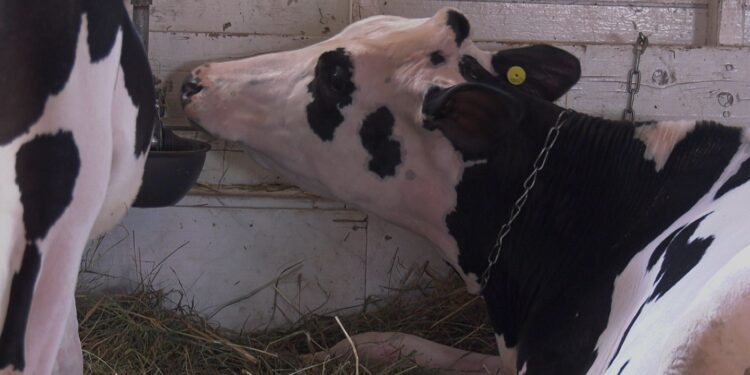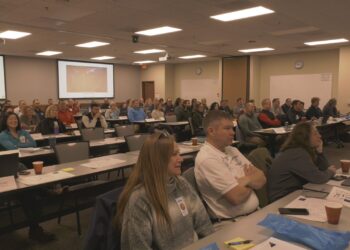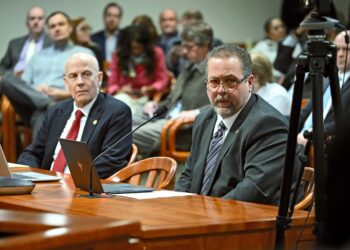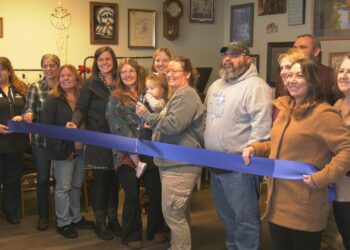ESCANABA, Mich. (WZMQ) – As avian flu concerns continue to grow in Michigan and around the country, events like the U.P. State Fair are taking measures to prevent outbreaks.
In May, the CDC announced the second human case of avian flu in Michigan—and the third human case in the U.S.—connected to an outbreak of the virus in dairy cows.
“We first got the word that this strain had been found in dairy cattle for the first time in Texas,” said State Senator Ed McBroom, a dairy farmer who serves on the U.P. State Fair Authority. “The place in Texas had exported cows to several other states, including Michigan. It hit Michigan pretty hard and pretty fast, and we almost immediately began seeing in those cows and spreading to other places.”
The virus also spread to poultry farms, where McBroom says it can be “deadly.”
“It has been in our wild bird populations and affected our poultry now for about a decade,” he explained. “The poultry guys were kind of prepared for it, but they didn’t expect it to suddenly come into some of their employees who had family members who worked on dairy farms. Then to see it spread to large mammals was very unexpected. With dairy cattle, for the most part, it’s not deadly to them, but it impacts their ability to make milk. It’s been a very serious hurt to dairy farmers, as well as to the poultry industry.”
As of August 9, the CDC has only identified one additional human case of avian flu specifically connected to dairy cows, found in Colorado. So far in Michigan, Senator McBroom says the virus has stayed in the Lower Peninsula.
He says legislators have been working with the Michigan Department of Agriculture and Rural Development (MDARD) to mitigate the spread.
“The department has had an aggressive, and I think productive, approach to this with limiting the movement of cattle and calling on farmers to implement biosecurity measures,” McBroom said, “which, for a lot of us in the dairy industry, had never really been that urgently necessary in the past.”
One of those measures states that no lactating cattle from dairy farms can be exhibited, leading to a few changes at the 2024 U.P. State Fair.
“For guests, the biggest impact will be not having milking time to observe in the dairy barn,” said McBroom. “We always have a lot of folks turn up to see us milk cows. It’s going to impact our show, because the dairy cattle are kind of the queens of the show. The mature dairy cattle are what really show off the breeding, so that will be lacking. Then the Miracle of Life exhibit is probably the biggest loss, but we’ll have other animals there giving birth.”
Exhibitors and fair staff are also working to ensure the health of animals that are being shown.
“We’re keeping records of every individual animal in case something were to be an outbreak,” McBroom said. “Then, it’s up to every farmer to be careful when they take their animals home with how they interact with the original herd.”
McBroom notes that in accordance with USDA and MDARD protocols, all dairy cattle must negatively test for the avian flu virus within seven days of the fair. He says while experts are still looking into why, beef cattle have shown “not to be likely” to carry the virus.
With the existing precautions in place, MrBroom believes fairgoers can expect an enjoyable and safe experience at the U.P. State Fair.
“There were the farm workers who have gotten sick but no one else has, so even on the farms that have had this, it hasn’t been rampantly moving,” he said. “Pasteurization has shown to be 100% effective on keeping the milk safe on this issue. The citizens can remain really confident about their food safety, and they can remain confident about visiting the fair. This is an on-farm problem that farmers are having to take seriously so the public is protected, and I think we’re doing a great job of that.”
WZMQ 19 is proud to be a Reserve Champion Sponsor of the 2024 U.P. State Fair. Stay tuned all week long for live reports from the fairgrounds.










